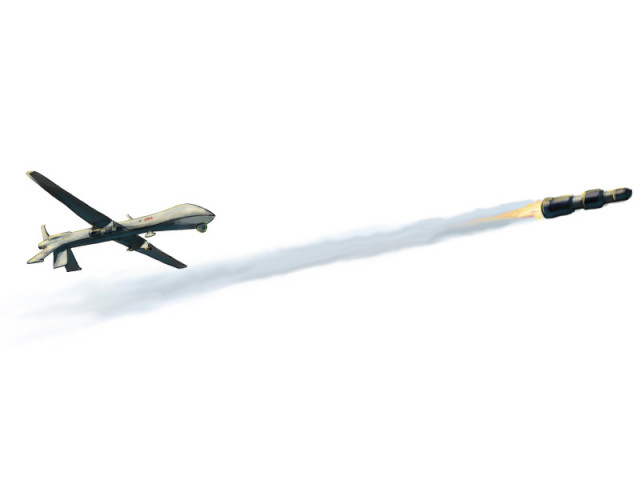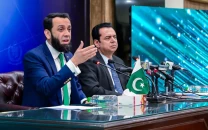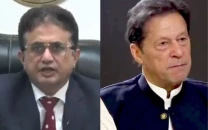Middle ground may be found on drone campaign
Spymasters from Pakistan, US to hold face-to-face talks in the coming weeks.

The controversial issue will be discussed between the two countries in meetings being planned in upcoming weeks to revive their cooperation in the wake of new recommendations drafted by an all-party parliamentary panel.
One such meeting will take place between the heads of both countries’ spy agencies — the ISI and CIA.
These face-to-face talks between Pakistan’s recently appointed spymaster Lt General Zaheerul Islam and CIA chief David Patreaus will be the first of its kind in months.
“The meeting is likely to take place before the Nato summit in Chicago next month,” said the official, who requested not to be named.
The military and the ISI, however, did not comment on the meeting when contacted.
“Ideally, Pakistan wants to see an end to the drone attacks, but it appears the US will not go that far,” another official acknowledged.
The official said that in the past Islamabad had offered to use F-16 fighter jets as an alternative to drones in order to take out “high-value targets” associated with al Qaeda and the Taliban, but Washington refused to accept the offer underlining the trust-deficit between the allies. The official disclosed that in order to find some common ground, Pakistan was likely to propose a mechanism under which the US will have to seek permission for every drone attack it plans.
In addition, the talks also seek to limit the frequency of drone strikes in an effort to pacify the growing public anger, the official said.
Meanwhile, an American diplomat also confirmed that the Obama Administration was willing to accommodate Pakistan’s concerns; however, it will not compromise on the drone campaign.
A member of the parliamentary panel revealed that the concerned authorities had pushed for a “watered down” clause on the drone attacks.
“Some concerned quarters in the power hierarchy were not interested in a categorical no on the drone attacks,” he said — adding that was the reason the new foreign policy guidelines did not directly link the drones with the resumption of Nato supplies.
The revised draft had excluded the original clause that said the government must immediately suspend land routes for forces stationed in Afghanistan if US/Nato/Isaf forces violate in any manner the territorial integrity and sovereignty of Pakistan.
However, the approved guidelines have called for an immediate end to the predator strikes but stopped short of calling the CIA campaign “counter-productive”.
“The fact of the matter is that drones are one less expensive military tool to target militants in the tribal areas but as far as the government is concerned this idea is very hard to sell publicly,” said a federal minister.
Published in The Express Tribune, April 16th, 2012.



















COMMENTS
Comments are moderated and generally will be posted if they are on-topic and not abusive.
For more information, please see our Comments FAQ